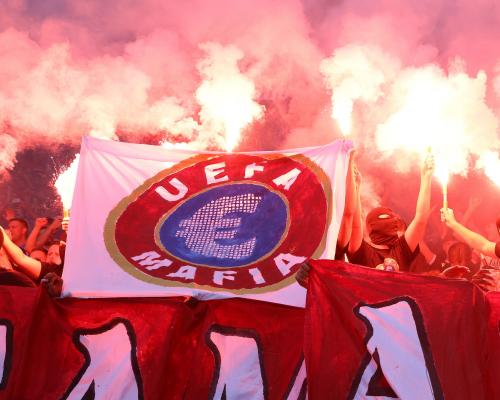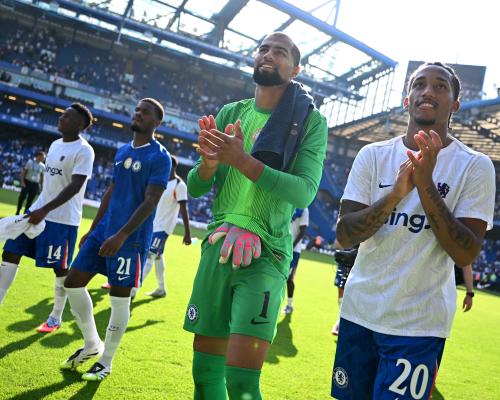
Crystal Palace have called on Uefa to scrap its “poorly conceived” rules on multi-club ownership (MCO) and questioned whether they received a fair hearing at the court of arbitration of sport after their appeal against demotion from the Europa League was rejected.
Cas confirmed on Monday that it had upheld Uefa’s decision to demote the FA Cup winners to the Conference League after it decided that John Textor held shares and had a decisive influence in Palace and Lyon, who also qualified for the Europa League. He has since sold his 43% stake in the south London club to his fellow US businessman Woody Johnson.
Palace, who are expected to miss out on up to £20m in extra revenue as a result, confirmed in a strongly worded statement on Tuesday that they are would take up their place in the Conference League – in which they will face Norway’s Fredrikstad or Midtjylland of Denmark in playoff this month – as they continue to take legal advice on whether to make a claim against Uefa for compensation.
Palace described the decision to sanction them as evidence that “sporting merit is rendered meaningless” and claimed that “certain clubs, organisations and individuals have a unique privilege and power”.
“This growing and unhealthy influence has shattered the hopes and dreams of Crystal Palace supporters, and does not bode well for aspirational teams all over Europe competing to progress when rules and sanctions are unevenly applied in the most flagrant way,” read the statement.
“Multi-club structures hide behind the charade of a ‘blind trust’ while clubs such as ours, who have no connection to another club whatsoever, are prevented from playing in the same competition. To compound the injustice, clubs that appear to have huge informal arrangements with each other are also allowed to participate and even possibly play against each other.”
Several clubs who are part of MCOs have been able to place their ownership in blind trusts to circumvent Uefa’s regulations, although Palace missed Uefa’s original 1 March deadline to do so. They are believed to have presented evidence to Cas that only members of the European Club Association (ECA) were informed that the deadline could be extended until 31 May. That argument was rejected by the Cas panel, which said that Uefa’s regulations were clear “and do not provide flexibility to clubs that are non-compliant on the assessment date”.
The regulations were updated last year to allow clubs who are part of MCOs to compete in different Uefa competitions but Palace believe further changes are needed from European football’s governing body.
“A combination of poorly conceived regulations and their unequal application means our brilliant fans will be deprived of the chance to watch this team compete in the Europa League for the first time in our history,” they said. “This should be a turning point for football. Uefa must fulfil its mandate to pass coherent rules which are properly communicated and applied, with reasonable cure periods to resolve uncertainty and consistent sanctions, treating all clubs equally with a proper appeal process.
“The European court of justice has made it clear that rulings similar to this will be under greater scrutiny from national courts in future. Only then will fairness and due process be granted to every team.”
Palace were also critical of their treatment at Cas, with frustration understood to stem from its refusal to consider what they believe was crucial evidence of correspondence between the ECA and some of its clubs over the extended deadline.
“While we respect the Cas tribunal members, the process is designed to severely restrict and, in our case, make it almost impossible to receive a fair hearing. The denial of all disclosure requests to obtain correspondence between the relevant parties, the refusal to allow witness testimony from those involved, and the general lack of formality and respect for law mean decisions cannot be properly challenged, leading to pre-determined outcomes.”
Cas and Uefa have been contacted for comment.





